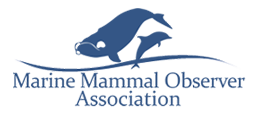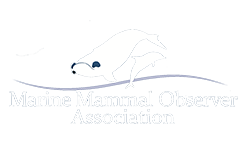This week the National Marine Fisheries Service (NMFS) Office of Protected Resources announced the publication of a new Technical Memorandum entitled National Standards for Protected Species Observer and Data Management Program: A model using geological and geophysical surveys. http://www.nmfs.noaa.gov/pr/publications/techmemos.htm.
The document outlines recommendations for the development of national standards for Protected Species Observers (PSOs). The report also provides recommendations for a national Data Management Program (PSO program). The improvements and suggestions for national standards in the US arose from a series of workshops that included representatives from the Bureau of Ocean Energy Management (BOEM), Bureau of Safety and Environmental Enforcement (BSEE), NMFS, PSOs and the Geological and Geophysical Industry. The recommendations outlined in the report include those specific to the NMFS and the BSEE and these are listed as the following:
 Recommendations for NMFS
Recommendations for NMFS
- Establish national PSO training standards.
- Develop a policy for national PSO qualifications and eligibility, and establish criteria by which individual PSO qualifications and experience can be evaluated.
- Ensure that PSO standards developed are consistent with existing federal statutes, regulations, and policies.
- Develop a strategy to coordinate with regional program managers to consistently implement PSO standards nationwide through interagency section 7 consultations under the Endangered Species Act (ESA), and Letters of Authorization (LOAs) and Incidental Harassment Authorizations (IHAs) under the Marine Mammal Protection Act (MMPA).
- Develop standardized data collection and reporting requirements to be used for interagency section 7 consultations under the ESA, and LOAs and IHAs under the MMPA for standardized data management and analyses.
- Develop data quality assurance standards and process.
- Work within NMFS Protected Resources at headquarters and regional levels, Regional Science Centers and the Office of Science and Technology to create a national database to manage PSO data and after-action reports from federal agencies and non-federal permit holders.
- Develop permits, authorizations, or agreements detailing expectations and data collection and reporting of third-party PSO trainers, including performance standards, conflicts of interest, and standards of conduct.
- Develop PSO communications and outreach materials, including drafting a manual that provides national guidance on training guidelines, procedures, and protocols for the observer issues outlined in this report.
Recommendations for BOEM/BSEE
- Develop a reimbursable agreement with NMFS to develop, implement, and manage the PSO training and data program.
- Consider assessing permit fees to financially support the PSO program needed for industry activities.
- Implement standardization including data collection methods, standardized electronic forms, and software used in collaboration with NMFS and non-federal stakeholders.
- Develop permits or agreements detailing expectations and data collection and reporting of third-party PSO provider companies, including performance standards, conflicts of interest, and standards of conduct.
- Implement quality assurance standards and manage PSO data for annual data analysis.
- Establish a process to advertise for and approve PSO procedures.
- Hold a stakeholder workshop to discuss new PSO procedures.
- Develop a mechanism, procedure, or regulation to ensure that selected PSO providers are being compensated prior to deployment of approved observers.
- Develop a debriefing and evaluation system for observers.
In the US PSOs are required for seismic surveys (and occasionally other offshore industry operations) operating in the Gulf of Mexico, Pacific, Arctic, Atlantic and also international waters. The standards outlined in this report include improvements and consistency in PSO training, qualification and experience requirements as well as providing a means to generate data that can better inform decision makers on the effectiveness of monitoring and mitigation measures for protected species.
While this technical memo only provides recommendations at present its content is promising for future improvements and policy developments specific to PSO standards, training and data management.

